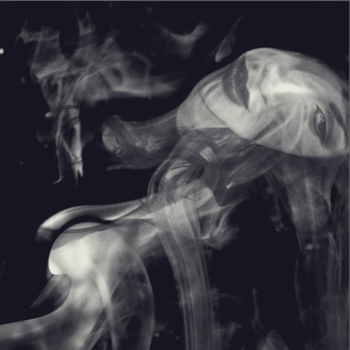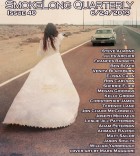What is the first fairy tale you remember reading or having read to you?
I remember reading Rumplestiltskin in a big Brothers Grimm anthology. It was very similar to the type that most children have, with glossy pages and intricate medievalish illustrations, but this anthology contained at least one typo, at the very end of this particular story. The story is supposed to end with something like “and he ripped himself in two” but mine said “and he ripped himself into.” I was so perplexed—into what?? For years I thought there was more to the tale that I was missing out on.
Can you recall the spark that led you to rethink Hansel and Gretel?
I had an assignment in one of my earliest creative writing classes in college to tell a fairy tale from the perspective of one of the characters—I think I chose Gretel. For some reason this particular fairy tale has always stuck with me. I took note at some point that the evil stepmother of the tale dies off-screen while the children are with the witch, and you can see where this leads.
You evoke such strong feelings, questions—and images in “The Woodcutter’s Wife” are spare, yet. Could you tell me a little bit about how you did that?
This is a difficult thing to remember! I think once I realized that hunger was the main motivator for all the characters, it was just a matter of realizing how each would react to it. Then I stuck closest to the character who had the most interesting reaction.
Do you think that because Hansel and Gretel is so familiar that most readers will arrive to “The Woodcutter’s Wife” with an intimacy of the story already in their experience? And if so, how did that influence you?
Ideally, the reader will approach my story remembering the main parts of the original story. The more detail they remember, the more they’ll get out of it, I hope. I’m drawn to a lot of literature that’s full of allusions to older tales and historical details (the work of Borges comes to mind) and I’m excited when a story makes me do more research or even go back and read the original. I think all readers are excited to be given more things to read.
Literature to me is a great conversation, and stories that are conscious of their own ancestry have always seemed truer to me than stories which seem to try their hardest to be wholly original. Any story that thinks it exists in a vacuum is fooling itself.
When you’re working on a new story what, if anything, do you like to read?
The pace of my reading is pretty constant—I’d say I’m a reader first and a writer second. I don’t consciously alter the direction of my reading based on what I’m writing—I trust in the brain’s associative powers to help me find that right turn of phrase or twist of plot. I figure the more I read, the more raw data is sitting in the section of my brain where I go to look for such things for a story I’m writing.
Are you working on something new right now?
I completed my MFA thesis in December and the rest of the winter was a fallow period for me, but now spring is here and some stories are starting to sprout. I tend to write very short pieces like “The Woodcutter’s Wife,” so they often appear on the page all at once after floating around in my brain for a while.



 The core workshop of SmokeLong Fitness is all in writing, so you can take part from anywhere at anytime. We are excited about creating a supportive, consistent and structured environment for flash writers to work on their craft in a community. We are thrilled and proud to say that our workshop participants have won, placed, or been listed in every major flash competition. Community works.
The core workshop of SmokeLong Fitness is all in writing, so you can take part from anywhere at anytime. We are excited about creating a supportive, consistent and structured environment for flash writers to work on their craft in a community. We are thrilled and proud to say that our workshop participants have won, placed, or been listed in every major flash competition. Community works.